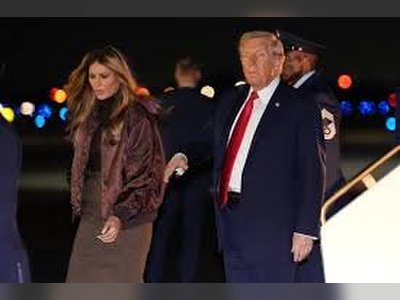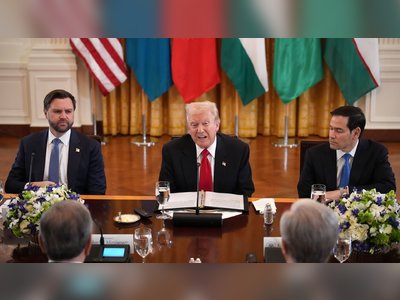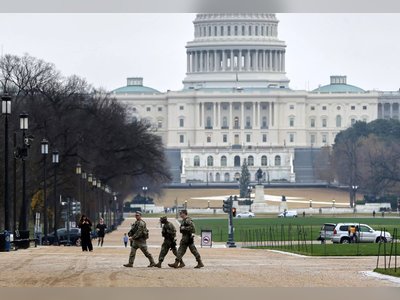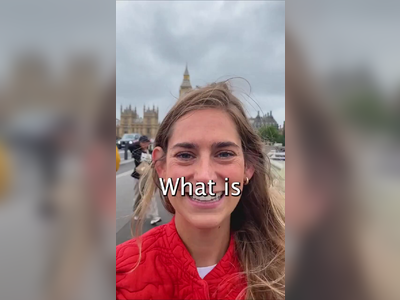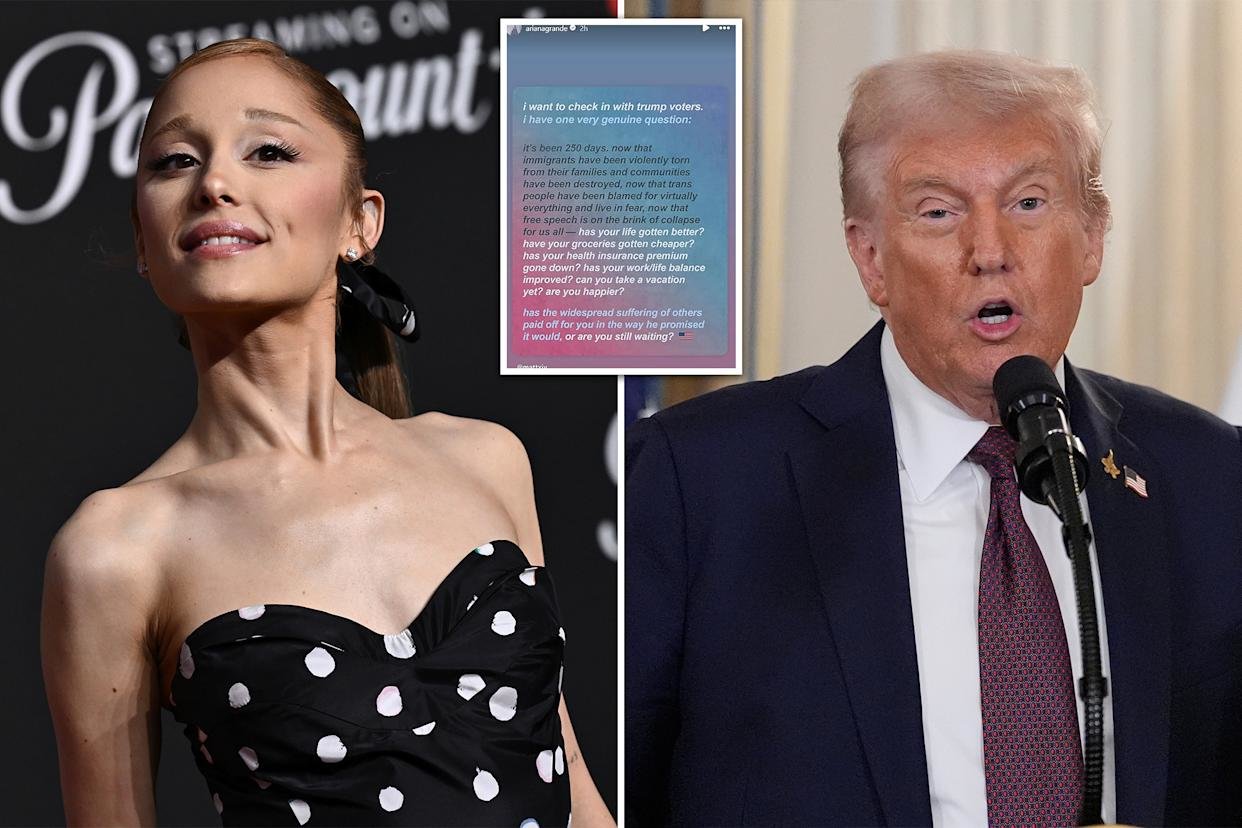
White House Fires Back at Ariana Grande’s Anti-Trump Post with ‘Save Your Tears’ Rebuttal
Administration credits Trump with ending inflation and promises fans sweeping reforms after singer’s social media criticism
The White House has issued a pointed response to pop star Ariana Grande after she shared a social media post questioning whether supporters of the president have seen meaningful improvements under his leadership.
In its reply, the administration quoted lines from one of her songs, saying “Save your tears, Ariana,” and praised President Trump for ending what it calls the previous “inflation crisis” while promising broad economic gains and regulatory action it claims will benefit her fans.
Grande reposted a message on Instagram that challenged Trump voters directly — asking whether their lives had gotten better since his return to office, whether essentials like groceries and health insurance had become more affordable, and whether fundamental freedoms — particularly for immigrants and transgender people — were under threat.
The post also referenced controversial policies including recent immigration enforcement operations and the treatment of LGBTQ+ communities.
White House spokesperson Kush Desai responded, invoking Grande’s own music: “President Trump’s actions ended Joe Biden’s inflation crisis and are bringing in trillions in new investments,” he said.
He added that the president had signed an executive order enabling the U.S. Federal Trade Commission to take on ticketing companies such as Ticketmaster — framed as delivering relief to concert-goers.
The statement concluded with a dismissive “Get well soon, Ariana!”
The exchange underscores the growing intersection between celebrity dissent and political communication in the United States.
It also reflects how the current administration is embracing a more confrontational style of messaging, using pop-cultural references to respond to public criticism.
Observers note that the tactic may energize supporters who view the rebuttal as standing up to elite criticism, while also fueling concern among advocates for immigrants, LGBTQ+ rights, and civil liberties about the tone and substance of political discourse in 2025.
In its reply, the administration quoted lines from one of her songs, saying “Save your tears, Ariana,” and praised President Trump for ending what it calls the previous “inflation crisis” while promising broad economic gains and regulatory action it claims will benefit her fans.
Grande reposted a message on Instagram that challenged Trump voters directly — asking whether their lives had gotten better since his return to office, whether essentials like groceries and health insurance had become more affordable, and whether fundamental freedoms — particularly for immigrants and transgender people — were under threat.
The post also referenced controversial policies including recent immigration enforcement operations and the treatment of LGBTQ+ communities.
White House spokesperson Kush Desai responded, invoking Grande’s own music: “President Trump’s actions ended Joe Biden’s inflation crisis and are bringing in trillions in new investments,” he said.
He added that the president had signed an executive order enabling the U.S. Federal Trade Commission to take on ticketing companies such as Ticketmaster — framed as delivering relief to concert-goers.
The statement concluded with a dismissive “Get well soon, Ariana!”
The exchange underscores the growing intersection between celebrity dissent and political communication in the United States.
It also reflects how the current administration is embracing a more confrontational style of messaging, using pop-cultural references to respond to public criticism.
Observers note that the tactic may energize supporters who view the rebuttal as standing up to elite criticism, while also fueling concern among advocates for immigrants, LGBTQ+ rights, and civil liberties about the tone and substance of political discourse in 2025.



